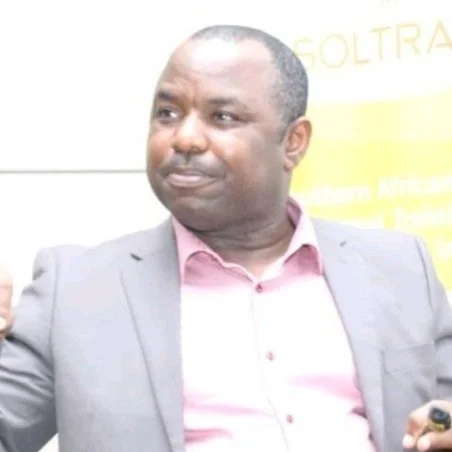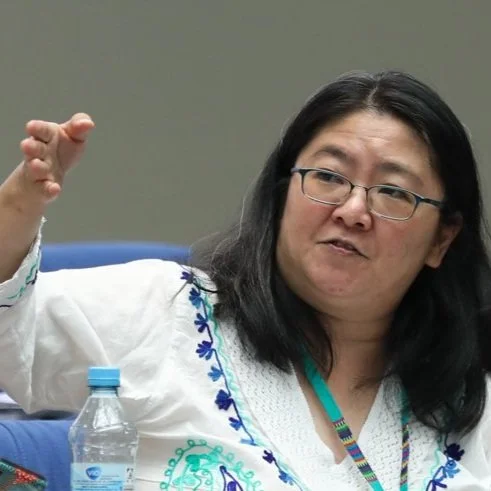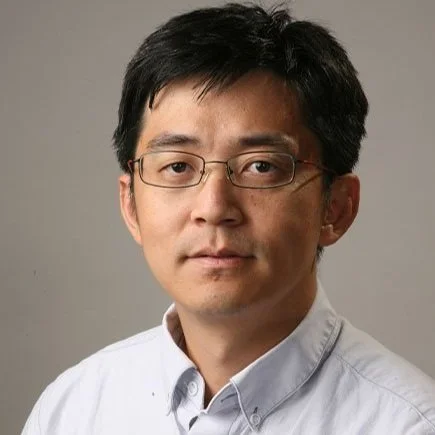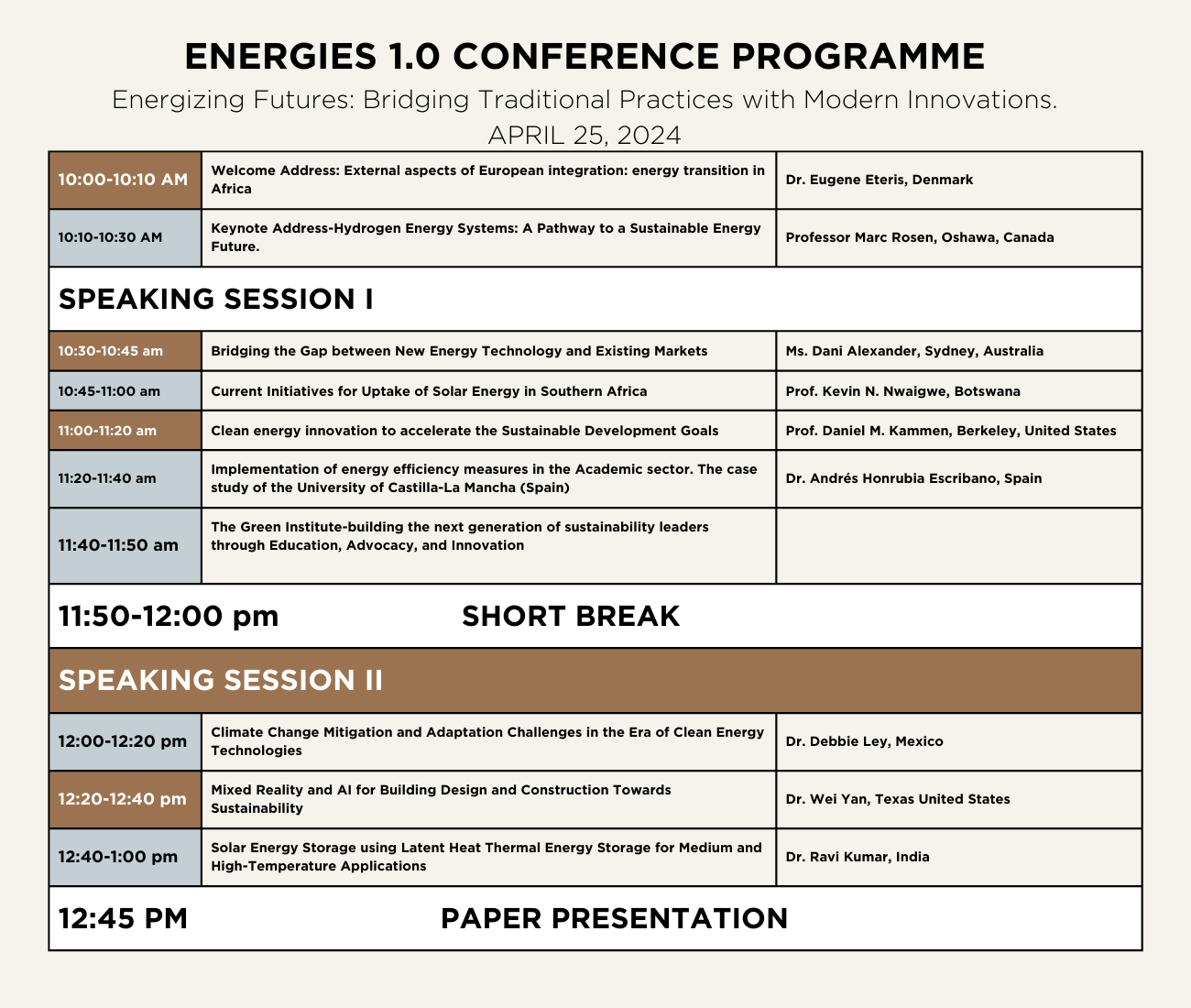In an era of rapid technological advancement, "Energizing Futures" aims to address the synergy between traditional energy practices and emerging innovations. It challenges thinkers, innovators, and policymakers to understand the value of integrating age-old wisdom with modern-day technology. By emphasizing a balanced approach to energy management, we hope to pave a sustainable, efficient, and inclusive path forward.
KEYNOTE SPEAKER
Professor Marc Rosen
Professor, Mechanical Engineering at the University of Ontario Institute of Technology in Oshawa, Canada.
Download Transcript
SPEAKERS
Prof. Daniel M. Kammen
Professor of Energy, University of California, Berkeley, United States
Dr. Andrés Honrubia Escribano
Associate Professor, Department of Electrical, Electronics and Control Engineering,University of Castilla-La Mancha (UCLM), Spain.
Prof. Kevin N. Nwaigwe
Professor of Energy and Power Engineering, University of Botswana, Botswana.
Dani Alexander
CEO, UNSW Energy Institute, UNSW Sydney, Australia
Dr. Debbie Ley
Chief, Energy and Natural Resources, Comisión Económica para América Latina y el Caribe, Chile
Dr. Ravi Kumar
Associate Professor, Indian Institute of Technology (IIT) Madras, India
Dr. Wei Yan
Director of PhD & MS Research Programs, Department of Architecture, Texas A&M University, United States
SUBTHEMES
Green Hydrogen – The New Clean Energy Frontier:
Production Techniques: Advancements in water electrolysis and integration with renewable energy sources.
Storage & Distribution: Challenges and innovations in hydrogen storage, compression, liquefaction, and infrastructure development.
Applications: Role of green hydrogen in transport, industry, and energy grids.
Policy & Economics: Strategies to make green hydrogen economically viable and regulatory frameworks to support its adoption.
Solar Innovations – Harnessing the Sun's Potential:
Photovoltaic Breakthroughs: New materials, designs, and efficiencies in solar panels.
Solar Thermal Solutions: Advanced methods of capturing and storing solar heat.
Building Integration: Modern architectures merging passive solar designs with advanced technologies.
Community Solar Projects: Decentralized solar initiatives and shared solar infrastructure models.
Wind Energy – Modern Twists on Ancient Practices:
Turbine Tech: Innovations in turbine designs, materials, and efficiency.
Offshore Wind: Challenges and opportunities in harnessing wind energy from the seas.
Grid Integration: Solutions for consistent energy supply from variable wind sources.
Cultural & Environmental Considerations: Studying the impact of wind farms on local communities and ecosystems.
Bridging Traditions – Intertwining Past & Present:
Traditional Energy Systems: Revisiting ancient energy practices like water mills, windmills, and biomass for modern relevance.
Local Knowledge & Practices: How indigenous and local energy practices can inform modern sustainable solutions.
Integrative Technologies: Tools and methodologies to seamlessly combine traditional methods with modern tech.
Education & Awareness: Promoting understanding and appreciation of historical energy solutions among younger generations.
Cross-sectoral Energy Solutions:
Agriculture & Energy: Integrating renewable energy solutions in farming, irrigation, and food processing.
Urban Planning & Design: Designing cities and communities optimized for renewable energy use and sustainability.
Transportation: Electrification, green hydrogen, and other sustainable energy solutions for land, sea, and air transport.
Industry Transitions: Switching heavy industries from fossil-based processes to renewable energy sources.
Policy, Strategy, & Societal Impacts:
Global Energy Policies: Studying and influencing international frameworks for energy sustainability.
Economic Considerations: Analyzing the financial feasibility and economic impact of transitioning to new energies.
Community Engagement: Role of local communities in influencing and adopting new energy practices.
Ethical Dimensions: Addressing the ethical challenges and considerations in global energy transitions.
ORGANIZING COMMITTEE
Scientific Committee
Chair
Dr. Eugene Eteris
Director, European Integration Institute, Denmark
Member(s)
Dr. Adenike A. Akinsemolu
Director, The Green InstituteAdrian Loy Chun Minh
Assistant Professor, Monash University, Australia










